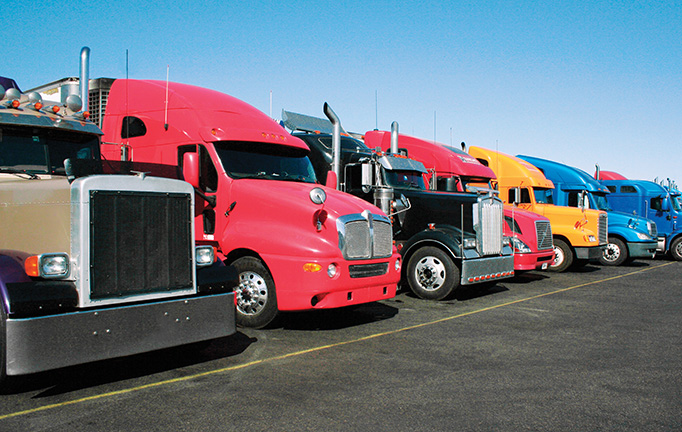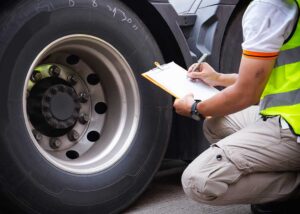In the current economic climate, opportunities abound for drivers. Some of those opportunities involve teaming with another driver, an option that often pays better and can allow the sharing of some road expenses.
Team driving is not for everyone. Many drivers choose trucking because of the independence it offers. For these drivers, even with electronic logging devices (ELDs), satellite tracking and advanced telemetrics, driving a truck still beats working 9 to 5 (or 11 to 7) at a plant or office. Sharing the close, personal space in the cab of a tractor does not appeal to some.
For others, however, teaming is a solution to some of the problems one might face in trucking. With another person in the cab, the isolation — and sometimes loneliness — of driving solo might be dispelled. When it comes to problem solving, two minds can be more effective. Team driving can also be a great way for friends, relatives and spouses to be involved in each other’s lives.
Team driving, however, takes a little more effort than two people just climbing in the cab together.
“Teams have to clarify roles up front, before there’s a problem,” explained Laura Duryea, manager of recruiting and retention at Billerica, Massachusetts-based Boyle Transportation. “Who drives at night? Who drives during the day? What preferences does each driver have?”
According to Duryea, these are issues that should be discussed before a couple decides to team. Such discussions can help to prevent problems on the road.
Boyle Transportation hauls mostly loads consigned to the military and pharmaceuticals, usually highly controlled products with special handling and delivery requirements. Because of customer and Federal Motor Carrier Safety Administration (FMCSA) requirements, 98% of the company’s fleet consists of teams, she noted. The company doesn’t look for a specific type of team, but it’s important that the individuals work well together.
“Teaming takes a lot of patience. Each has to recognize that their team partner may behave in certain ways due to exterior influences such as traffic, weather, hunger or whatever,” Duryea said.
Jill Coulter and her husband, Dean, have been team driving with Boyle for four years, often staying out two to three weeks at a time.
“We’re each other’s best friends,” Jill said.
The couple began their trucking careers when their daughter wanted to attend Bible college.
“We needed more income to make it happen,” Dean sad.
The couple attended a hiring event sponsored by Schneider National and enrolled in Schneider’s CDL school.
“We ran A-Team expedited freight to start,” Dean said.
Running expedited freight and then pulling doubles for Estes between terminals kept the Coulters busy, but things are a little slower paced these days.
“At Boyle, 3,000 miles a week is a good week,” Dean noted. “There are a lot of ‘truck watch’ and security duties, since we haul for the military.”
While the pace of work has slowed for the Coulters, stress levels have not. As drivers for Boyle, their loads are often monitored, and sometimes escorted by government vehicles.
“They monitor the loads and know exactly where you are,” Jill related.
Part of the Coulters’ success can be attributed to the division of duties they have worked out.
“She handles everything inside of the truck, including cooking and supply inventory,” Dean explained. “I handle everything outside — except we each handle fueling if it’s our turn to drive.”
While teaming works well for the Coulters, others who are considering teaming have much to consider.
Sleeping in a moving truck is a prime example. Some drivers don’t sleep well when the truck is in motion, no matter who is driving. Then there’s the noise coming from the other team member, who may be listening to music or using the CB while working. Traffic noise, engine brakes and roadway sounds don’t help. Even the best of relationships won’t survive team trucking if one partner can’t get any sleep.
A long-forgotten advice columnist once gave this counsel to couples who are considering teaming. “Lock yourself in the bathroom together for a week,” the column read. “If you’re still on speaking terms, you might be able to team in a truck.”
Of course, not every team is romantically involved. Friends or relatives who normally get along well often find that things are different when confined to a truck. Bad habits and personality quirks that can be overlooked at home become magnified in the truck. Discussions about highly personal things can be difficult between drivers who only thought they knew each other well.
Privacy, or the lack of it, is an issue for every team. A truck that stays in motion most of the time makes it difficult to have a private phone conversation or engage in any activity without an audience. The thin curtain that separates the sleeper berth from the tractor cab may provide some privacy, but that curtain provides nothing in the way of security once it is opened.
Hygiene can be another issue that can come between team partners. If one takes a shower every morning while the partner washes on a weekly basis, clashes will occur.
Personal possessions can be another area for conflict. It makes no sense to have two CB radios, two refrigerators or two microwaves. Who has the use of each, and expectations for taking care of them, should be discussed up front, before issues arise.
Regardless of the relationship, patience and communication are essential for team drivers.
“Team partners need to be able to ‘walk away’ from a stressful situation and willing to talk later,” Duryea advised. “Don’t let things fester. It doesn’t take much to set things off when it’s allowed to build up over time.”
Driving as a team can be a rewarding and profitable experience if the partners work together to avoid the pitfalls.
Cliff Abbott is an experienced commercial vehicle driver and owner-operator who still holds a CDL in his home state of Alabama. In nearly 40 years in trucking, he’s been an instructor and trainer and has managed safety and recruiting operations for several carriers. Having never lost his love of the road, Cliff has written a book and hundreds of songs and has been writing for The Trucker for more than a decade.









Great article! Teaming can be challenging and rewarding at the same time.
Very well written!